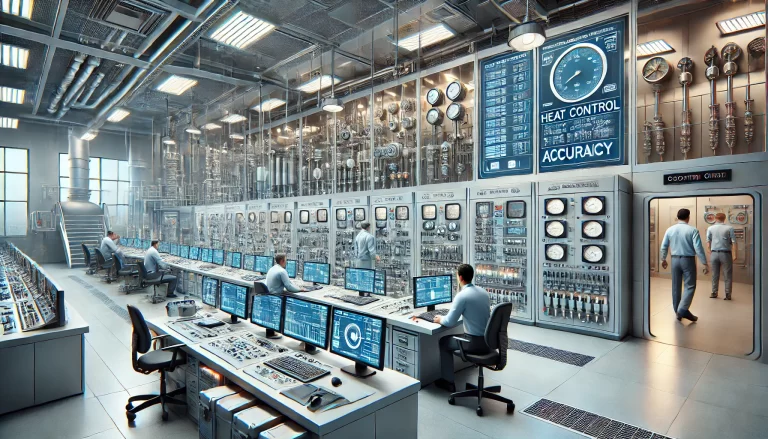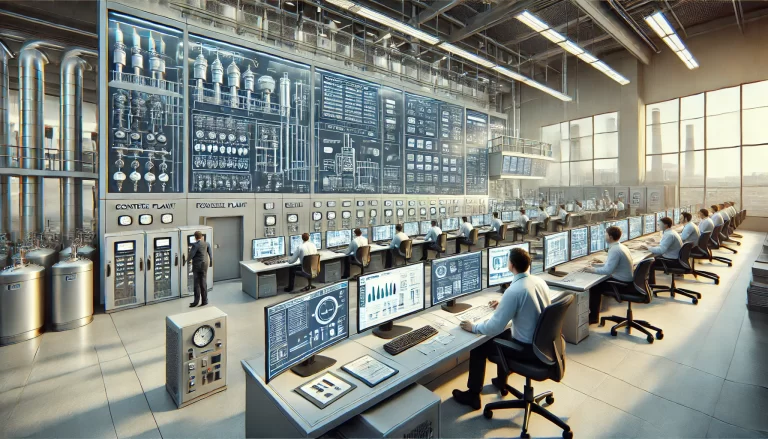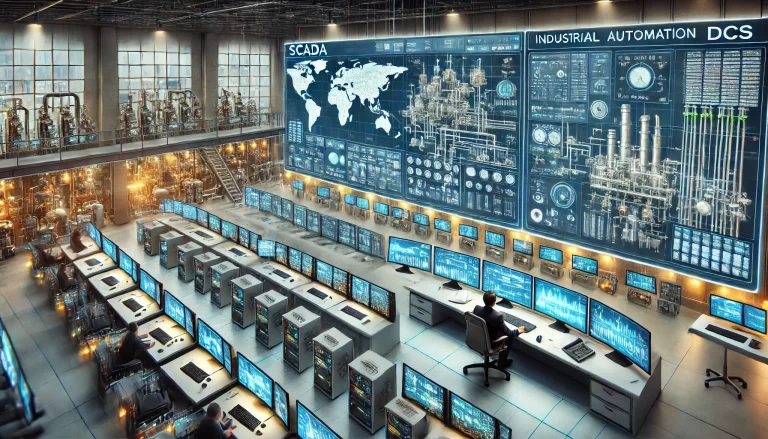In today’s era of rapid industrial transformation, the construction of smart factories has become a widespread initiative across various industries. Many enterprises, particularly in the non-ferrous metal sector, are investing heavily in automation technologies and digitalization tools in pursuit of higher efficiency, productivity, and reduced reliance on manual operations. The prevailing belief is that the implementation of expert systems will seamlessly lead to fully automated, unmanned factories. However, the reality within many plants tells a different story.
Despite deploying advanced Distributed Control Systems (DCS), such as those provided by Honeywell, these systems are often underutilized. Many enterprises fail to leverage even the basic functionalities of their DCS, and in some cases, there are no active control loops implemented at all. Instead of fully utilizing the automation potential of the DCS, plant operations are still heavily dependent on manual interventions by operators or rely solely on Programmable Logic Controllers (PLCs) with hardwired logic. This operational gap reveals a significant difference between the practices in these enterprises and those in advanced process industries where automation technologies are extensively and effectively utilized.

The Misconception of Expert Systems and Advanced Control Technologies
One of the major misconceptions in the industry is that adopting expert systems or advanced control algorithms alone will automatically resolve operational challenges and improve efficiency. However, without a solid foundation in utilizing the standard functions of the existing DCS, such systems can often lead to inefficiencies rather than improvements.
For instance, expert systems require well-defined process control logic and seamless integration with DCS functionalities. If this integration is not carefully designed, the implementation can turn into a mere translation of manual switching logic into automated routines, without adding any real operational value. As a result, resources are consumed, processes become more complex, and adherence to standardization is often compromised. Furthermore, the long-term maintainability of such systems becomes a challenge if plant personnel lack the necessary skills to understand and adapt the system to evolving operational needs.
Challenges Faced by Control Engineers
The critical challenge facing control engineers is not the implementation of cutting-edge algorithms, but rather ensuring the proper configuration and tuning of control loops using the existing DCS capabilities. The ability to configure control loops, optimize PID parameters, and transition smoothly from manual to automatic operations is crucial for achieving stable and efficient plant performance.
Unfortunately, many engineers have only a superficial understanding of PID tuning and control loop optimization, which leads to ineffective automatic control. In many cases, poorly tuned systems introduce process instability, resulting in operators being reluctant to switch to automatic control modes. This hesitation undermines the intended benefits of automation and leads to continued reliance on manual operations, further delaying the realization of a smart factory.

Leveraging Existing Resources: The Key to Sustainable Optimization
For most enterprises, the most meaningful and impactful course of action is not the pursuit of new algorithms or cutting-edge technologies but the full utilization of existing resources to identify and solve operational problems. Continuous process optimization and incremental improvements are the true drivers of sustainable industrial growth.
In reality, only a small fraction of the available functionalities within existing plant equipment and automation systems are being utilized. By focusing on automation enhancements and fully tapping into the capabilities of existing systems, enterprises can achieve significant gains in productivity, efficiency, and process stability.
Plant engineers should focus on key areas such as:
Standardizing Operations Through DCS Functions:
- Implementing standardized control strategies and leveraging built-in DCS functions to achieve consistent and repeatable process control.
- Reducing reliance on manual operations by gradually transitioning to automated control loops.
Enhancing Skills and Knowledge:
- Providing targeted training to engineers and operators to improve their understanding of DCS functionalities, control loop tuning, and troubleshooting.
- Encouraging a culture of continuous learning and problem-solving.
Gradual and Sustainable Automation Upgrades:
- Instead of adopting a radical overhaul, enterprises should take a phased approach to automation by first optimizing existing systems and processes.
- Incremental improvements, such as refining control strategies and eliminating process bottlenecks, can yield significant long-term benefits.

Conclusion
The construction of a smart factory is not merely about implementing the latest technologies; it is about making the best use of what is already available. True digital transformation requires a deep understanding of the existing automation infrastructure, adherence to best practices, and continuous optimization efforts.
For control engineers and plant managers, the focus should be on getting the fundamentals right—configuring systems correctly, tuning them effectively, and ensuring smooth integration of automation into daily operations. By prioritizing these fundamental aspects, enterprises can achieve substantial operational improvements without unnecessary investments in new and complex technologies.
In conclusion, the journey to smart manufacturing is not defined by the number of new systems implemented, but by the efficiency and effectiveness with which existing resources are utilized to drive continuous improvement and innovation.
